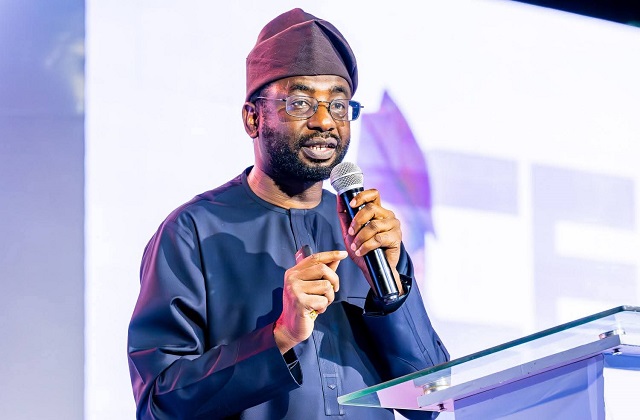News Highlights:
- Nigeria Targets 70% Digital Literacy by 2027
- Digital Innovation Anchors Tinubu’s Economic Agenda
At the heart of Nigeria’s economic recovery lies a bold, people-centered strategy: empowering every Nigerian with digital literacy.
This was the resounding message from Kashifu Inuwa Abdullahi, Director General of the National Information Technology Development Agency (NITDA), as he addressed business leaders at the BusinessDay CEO Forum in Lagos.
Speaking on the topic “Nigeria’s Journey to a Digital Economy,” Inuwa made it clear that digital literacy is not a luxury but a foundational requirement for national development.
“Digital literacy is the foundation of our digital economy,” Inuwa stressed. “It is not just about knowing how to use devices or apps, it is about empowering people to unlock opportunities for entrepreneurship, job creation, and economic participation.”
Inuwa spotlighted the Digital Literacy for All (DL4ALL) Initiative, a far-reaching national programme targeting 70 per cent digital literacy by 2027.
The initiative, he explained, is designed to reach Nigerians across all walks of life, whether in schools, offices, markets, or underserved communities, through mobile literacy campaigns, local training hubs, and accessible digital platforms.
“Our goal is simple yet transformative,” he said. “To ensure every Nigerian, whether in urban or rural areas, has the digital skills required to thrive in the modern economy. A digitally literate nation is a prosperous nation.”
Drawing on Nigeria’s digital evolution, Inuwa traced the country’s journey back to 2001, when less than 500,000 Nigerians had access to computers and the ICT sector contributed a mere 0.5 per cent to the GDP.
Today, the landscape has changed dramatically, with over 130 million Nigerians online and ICT contributing over 17 percent to the national economy.
He highlighted the enactment of the NITDA Act in 2007, the 2012 pivot towards daily ICT integration, and the 2019 leap into the digital economy era as significant milestones.
According to Inuwa, the digital momentum has only accelerated under the current administration, with President Bola Ahmed Tinubu’s Renewed Hope Agenda positioning digital innovation at the centre of Nigeria’s growth strategy.
“Mr. President’s Renewed Hope Agenda spanning from economic reforms, national security, agriculture, energy, and infrastructure to education, health, social investments, and governance, presents clear opportunities for technology to make a transformative impact across all sectors,” Inuwa remarked.
He argued that technology should no longer be viewed as a stand-alone sector, but as a fundamental tool embedded in every critical industry. “Technology is not just an enabler; it is a driving force behind achieving these goals and building a prosperous, inclusive, and resilient Nigeria. Today, technology allows us to simplify processes and make everyday life easier.”
He added: “Our President’s Renewed Hope Agenda recognises that technology is not just an enabler, it is a catalyst for economic growth, job creation, and national development. This transformation didn’t happen overnight. It has been a consistent process of reform, innovation, and deliberate action.”
Inuwa cautioned against seeing economic reform as a single event or milestone. Rather, he described it as an ongoing process: “Reforming the economy to deliver sustained, inclusive growth is not about reaching a finish line.
“It is not something we achieve once and then stop. Rather, we must see it as a continuous journey, a constant process of improvement and innovation.”
He also outlined the strategic pillars of NITDA’s digital agenda, which include fostering digital literacy and talent, strengthening cybersecurity and digital trust, expanding infrastructure access, promoting innovation, and creating agile governance within the agency. Each of these, he noted, is critical to building a digital economy that leaves no one behind.
“These are not abstract goals,” he concluded. “They are deliberate, actionable strategies designed to build an inclusive, resilient, and prosperous economy for all Nigerians.
“Our success as a nation depends on how well we equip our people with digital skills. If we get this right, we will not only create jobs and drive innovation but also secure Nigeria’s place as a leader in the global digital economy.”

